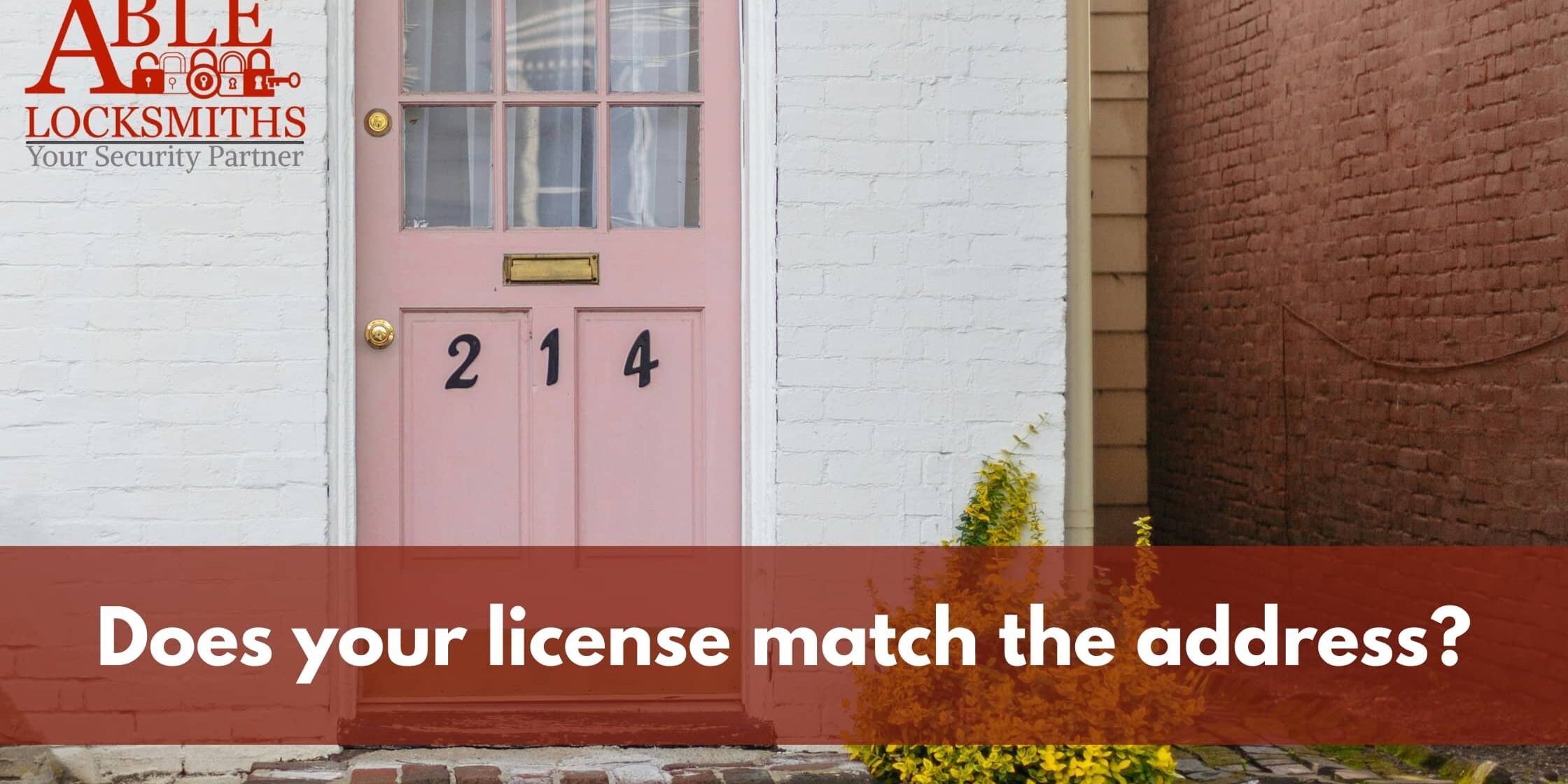If you’ve ever called a locksmith for an emergency lockout, you’ve probably heard the question, “Does your ID match the address?” And let’s face it — when you’re already having a bad day, this might be the last thing you want to hear. But, there’s a good reason for it, and trust me, it’s not because we’re being jerks.
Generally speaking, we love the challenge of getting into things (legally, of course). But we use our skills for good, not evil. So there are rules and regulations (and laws) we follow to protect your security.
It’s Not Personal, It’s Just Due Diligence
When a locksmith insists that your ID match the address before unlocking your door, it’s not because we’re trying to make your life more difficult. We know that an emergency lockout is stressful. However, it’s part of our due diligence to make sure we’re not unknowingly helping someone commit a crime.
Think about it this way: you can’t get a job without providing your ID for identity verification. You can’t open a bank account without an ID. You can’t rent a car or board a plane without showing your ID. In many states, you can’t vote without one! So, it makes perfect sense for a locksmith to verify your identity before handing over access to your property.
In states like Maryland and Virginia, locksmiths are even required by law to verify ID. So, if a locksmith doesn’t ask to see your ID, chances are you’re dealing with a scammer — but that’s a story for another time!
What’s the Verification Process?
Before helping with residential lockouts, a legitimate locksmith will typically ask for:
- Government-Issued Identification: Such as a driver’s license, passport, or state-issued ID.
- Proof of Residence or Ownership: Documents like utility bills, lease agreements, or vehicle registration that match the name and address on your ID.
This is a standard procedure to ensure that the person requesting assistance has legitimate rights to the property or vehicle. It’s a safeguard to protect both you and the locksmith from becoming involved in criminal activities.
But People Don’t Actually Do That, Do They?
You betcha.
But don’t worry, locksmiths have a pretty solid process in place to screen out these scams. Here are a few examples of the kinds of shady things we deal with:
1. The “Shaniqua Don’t Live Here No More”
In this scam, someone who no longer lives in a house or apartment tries to regain access to the property by calling a locksmith. This can get tricky because sometimes, the ID actually does match the address. If we suspect something is off, we may require additional documentation. If another party challenges the customer’s right to access the property, we will request legal documentation (like a lease termination or eviction notice). If things don’t add up, we call the police.
2. The Magic Deadbolt Trick
This one’s a classic: a customer calls, saying they were locked out of their house after stepping outside — perhaps to let the dog out or grab the mail. They tell us their ID matches the address, but the key is inside. However, when we arrive, we notice the deadbolt is locked — something you can only do with a key. So, we ask, “Which door did you go out of?” and, you guessed it, the story starts to unravel. If we catch a whiff of something fishy, we report it to the authorities.
3. The Bait & Switch
This scam starts off with a story about losing house keys. They claim their ID matches the address, and that they’ll find some other proof of ownership (like a utility bill) once we get inside. But once we get in, it’s a different story. No bill, no evidence — just an uncomfortable feeling. When things don’t line up, we call the police to confirm ownership and secure the property.
Why It’s Important
These scenarios highlight the essential role locksmiths play in securing homes and vehicles. By carefully verifying IDs and ownership, we ensure that we’re not inadvertently helping someone commit a crime.
We totally understand how frustrating it can be to face delays while verifying your identity — especially when you’re already stressed. But please know that these procedures are in place to protect everyone involved, including you, the property owner. We don’t like being sticklers for rules, either, but we’ve got to follow them to keep everyone safe.
Need to Update Your Address?
If you’ve recently moved and need to update your address, here are some helpful resources:
- Maryland: MVA Change of Address
- Virginia: DMV Address Change
- West Virginia: Change Address in West Virginia
- Pennsylvania: Change Driver License Address
Thanks for understanding the importance of identity verification for emergency lockout services. We know it can be annoying, but it’s a small step that keeps everyone safe and sound.
PRO TIP
Add our info to your contact like this:
First Name: LOCKSMITH
Last Name: Able Locksmiths
Phone Number: 301-662-7275
Email Address: info@ablelocksmithsllc.com
Address: 304, W Patrick St, Frederick, MD 21701
This will ensure that you are prepared with a legitimate locksmith in the event of an emergency lockout.

